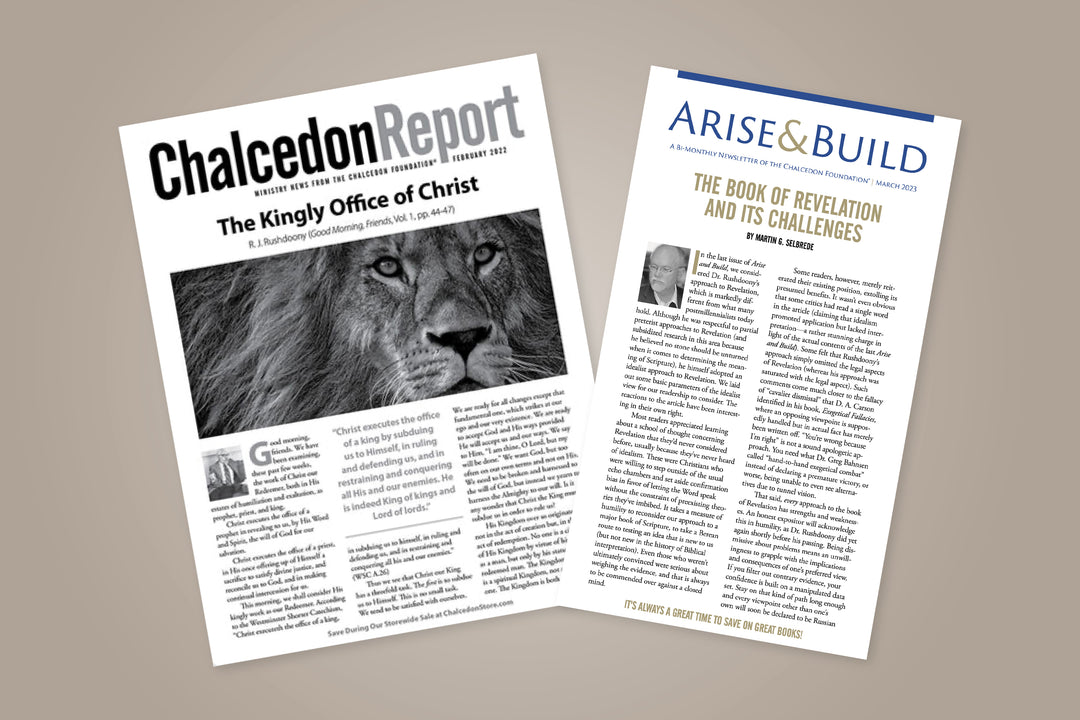
Nahum
Mark R. Rushdoony
Regular price
$796
$7.96
Regular price
$796
$7.96
Sale price
$796
$7.96
Save 0%
/
- Secure payments
Product Details
|
FORMAT: MP3 Album ALBUM SIZE: 4 Tracks CONDITION: Original Sound Quality CONTAINS: 1 zip file (194 MB) |
LANGUAGE: English TOPICS: Biblical Commentary, Minor Prophets, Old Testament History, RELATED SCRIPTURE: Nahum PUBLISHER: Chalcedon |







